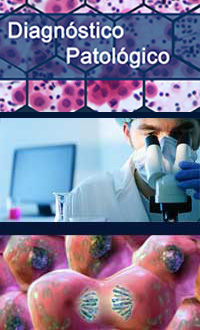Pathology
Pathology is the study and diagnosis of disease through the examination of organs, tissues, body fluids, and entire bodies (autopsies).
The pathology also covers the scientific study related to the processes of the disease, called a general pathology.
Medical pathology is divided into two main ramifications, anatomical pathology and clinical pathology.
General pathology, also called investigating pathology, experimental pathology, or theoretical pathology, is a spacious and complex scientific field to which searches to understand the mechanisms of damage to cells and tissues, as well as the body's means of The answer and repair damage.
The fields of study include cell adaptation to damage, necrosis, inflammation, hurt cure, and neoplasia. Forms the seat of pathology, the application of this knowledge to diagnose diseases in humans and animals.
The term & ldquo; general pathology ” It is also used to describe the practice of anatomical and clinical pathology.
Pathologists are the doctors who diagnose and characterize disease in living patients by examining biopsies or body fluids. In addition, pathologists interpret medical laboratory tests to help prevent disease or monitor a chronic condition.
Pathologists do the vast majority of cancer diagnosis. Pathologists examine tissue biopsies to determine if they are benign or cacerogens. Some pathologists specialize in genetic tests that can, for example, determine the most appropriate treatment for certain types of cancer.
In addition, a pathologist analyzes blood samples from the annual check of a patient and alerts his primary care physician at any change in his early health, when successful treatment is more likely. Pathologists also review test results or performed by specialists, such as blood tests ordered by a cardiologist, a biopsy of a skin injury removed by a dermatologist, or a smear exam made by a gynecologist, to detect abnormalities .
Pathologists work with other doctors, specialty medical societies, medical laboratory professionals, and health care consumer organizations to set consultation guides and medical laboratory test patterns that help improve medical assistance of a patient and the treatment of the guide, as well as ensure the quality and insurance of national and international medical laboratories.
Pathologists can also conduit autopsies to investigate causes of death. The results of the autopsy can help live patients revealing a hereditary stranger of the disease to the family of a patient.
Pathology is a discipline of the base of the Faculty of Medicine and many pathologists are also teachers. As managers of medical laboratories (which include chemistry, microbiology, cytology, blood battery, etc.), pathologists play an important role in the development of laboratory information systems.
Although the medical practice of pathology grew out of the tradition of researcher pathology, most modern pathologists do not carry out the original investigation.
Pathology is a unique medical specialty. The pathology touches the entire remedy, because diagnosis is the seat of all care to patients. In fact, more than 70 percent of all decisions on diagnosis and treatment, hospital admission, and based on licensing under medical examination result.
Pathologists play a critical role in patient care, working with other doctors to treat patients and care guide. To be authorized, candidates must terminate medical training, an approved residence program, and Sean Certified Byun appropriate body.
In e.e.u.u., certification is next to the American pathology or American osteopathic card of pathology. The organization of Subspecialties within the pathology varies between nations, but generally includes anatomical pathology and clinical pathology.



